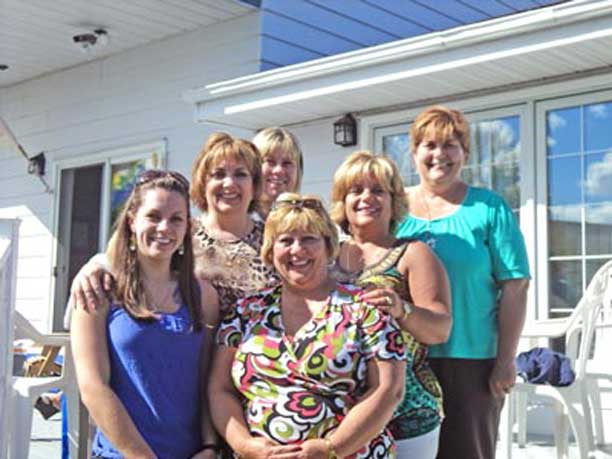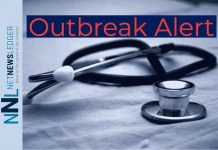

THUNDER BAY – Health – The Gustafson sisters – all five of them – are smart, busy, professional women who take care of themselves. They learned this from their mother. The family, including Dad who had one of the earliest CAT scans in the region, has a strong history of medical screening. The sisters are all regularly screened for breast cancer as a result of one sister who was diagnosed with the disease. But for some reason, colorectal cancer screening wasn’t on their radar.
That changed in January 2011 when their mother, Marya Gustafson, was diagnosed with colon cancer just before her 80th birthday.
Marya had undergone a colonoscopy four years prior and had polyps removed, but when her family physician retired, Marya’s routine follow-up wasn’t scheduled.
Gustafson sisters all undergo cancer screening
It happens. That’s why it’s so important for people to be aware of the benefits of early detection and screening and to ask their healthcare provider about screening. When caught early, colorectal cancer is 90% curable. All it takes is a Fecal Occult Blood Test (FOBT), a simple, non-invasive, and private test that can detect the early signs of the disease.
Not one of the sisters, despite their eligibility, had been screened for colorectal cancer.
[sws_pullquote_right]ColonCancerCheck, Ontario’s organized cancer screening program recommends that adults who have a family history of colorectal cancer (parent, sibling or child) or who have symptoms should have a colonoscopy to screen for colorectal cancer [/sws_pullquote_right] “We didn’t even need to ask about screening, Mom’s surgeon insisted that all five of us be screened immediately,” said Geraldine, the eldest sister. The sisters were quickly scheduled for colonoscopies, and are now being watched closely with regular follow-ups.
ColonCancerCheck, Ontario’s organized cancer screening program recommends that adults who have a family history of colorectal cancer (parent, sibling or child) or who have symptoms should have a colonoscopy to screen for colorectal cancer. If you are 50 years of age and older with no family history or symptoms, the program recommends screening with the ColonCancerCheck kit or FOBT every two years.
The Gustafson girls are all okay and have certainly added “check the rear view” to their to-do list, but their mother wasn’t so lucky. After harrowing surgeries and a lengthy struggle with colorectal cancer that had spread, Marya passed away in August 2011.
Kayla, one of Marya’s eleven grandchildren, helped care for her grandmother during her last months of life. Kayla, now a student at the Northern Ontario School of Medicine, is a huge proponent of screening.
“There really is no excuse not to get screened. I know that talking about colorectal cancer is not the easiest thing in the world, but it’s immeasurably better than what I watched my grandmother go through,” she said.
March is Colorectal Cancer Awareness Month. This month, let’s change the fact that only 30% of eligible people in Ontario are screened regularly for colorectal cancer. Talk to your health care provider about the right colorectal cancer screening test for you. For more information about ColonCancerCheck or colorectal cancer, visit Ontario.ca/coloncancercheck or call Telehealth at 1-866-828-9213.
For more information on cancer screening and the right time to get screened, Ontarians can visit ontario.ca/screenforlife and complete the Time to Screen tool.
The Gustafson girls are now advocates for each other to make sure they are all screened regularly. And they have a message to share: it is very important to advocate for your own health. Whether you have a family history or not, they urge people to be open and persistent when speaking to their primary care provider about getting screened.






